 Post an Event
Post an Event
| Benton County Republicans’ Private Fundraising Event, “Bent-on Boots and Bling” with Trey Taylor |
| Friday, September 5, 2025 at 5:00 pm |
| Featuring Trey Taylor
Music Private Event
Friday, September 5, 2025 5:00-5:30 pm VIP Reception
5:30-8:00 pm Heavy Appetizers,
Auction, Concert
Red: $750 VIP Reception
Front Row Table Sponsor
White: $500 Table Sponsor
Blue: $50 per person
Limited Seating. Get Yours Now!!!
Support Local
Dress up: Bling, Cowboy, Patriotic Benton County Republican
FUNDRAISER
www.BentonGOP.org
Get your tickets today at:
https://www.bentongop.org/event-details/benton-county-republicans-fundraiser/form
About Trey:
Trey is the youngest African American Man in Country Music History. The Denver Post wrote
"It's impossible to miss his enthusiasm. With a fondness for cowboy boots, gaudy colors and dazzling jewelry, Trey Taylor could stand toe to toe with any of the Pop, Country or even Rap
contemporaries of his generation.“ |
| Trysting Tree Golf Club, 34028 NE Electric Rd., Corvallis |
The PAC is now known as “Oregon Taproot PACâ€
A complaint was filed today with the Oregon Secretary of State Elections Division that detailed likely campaign finance violations by Save Yamhill County PAC, now known as Oregon Taproot PAC. The complaint was filed by a Yamhill County voter who not only noticed the name change, but also an abnormality with the most recent expenditure.
It appears that Save Yamhill County PAC filed an amendment to their committee on March 16, 2023, to change the PAC name to “Oregon Taprootâ€. March 16th was only four days prior to the filing deadline for candidate and measure voter pamphlet statements, which were due on March 20, 2023.
On April 19, 2023, Oregon Taproot PAC posted a $1,050 transaction for “Voter Pamphlet Statements†in Orestar as a reimbursement to PAC Director Lynnette Shaw, a controversial progressive activist in Yamhill County and member of Progressive Yamhill. Progressive Yamhill and Save Yamhill County were behind several failed recall attempts of school board members and a county commissioner. The expenditure occurred on March 20, 2023, the same day as the deadline for submission of voter pamphlet statements.
A D V E R T I S E M E N T

A D V E R T I S E M E N T
There are no records of which statements Lynnette Shaw paid for. There have been no in-kind transactions posted to any candidate or measure PACs, and Oregon Taproot has not updated its committee to reflect that it is engaged on any measure in the county. This violates campaign finance laws.
A local activist who asked not to be named asks, "Who or what is Save Yamhill County trying so desperately to protect by filing a last-minute name change, paying for voter pamphlet statements, and not disclosing the in-kind contributions? Perhaps the candidates will come forward now that “Oregon Taproot†has also put them in violation of campaign finance law."
--Staff Reports| Post Date: 2023-04-24 17:15:40 | Last Update: 2023-04-28 15:34:33 |
Democrats refuse to move bills out of committee
In recognition of Earth Day, Oregon House Republicans have attempted to withdraw five pieces of legislation that would have protected Oregon from future environmental hazards. Experts expect that more than 720,000 tons worth of wind turbine blades will end up in U.S. landfills over the next 20 years, and that 78 million tons of solar waste will end up in U.S. landfills over the next 25 years.
While none of the motions received the required 31 votes to withdraw the legislation, three of the five votes received bipartisan support.
- HB 2215 – Removes barriers to the production of nuclear energy in Oregon. Motion to withdraw from Climate, Energy, and Environment failed - Ayes, 23; Nays, 33.
- HB 2198 – Creates accountability for renewable energy project failures. Motion to withdraw from Climate, Energy, and Environment failed - Ayes, 30; Nays, 26.
- HB 2702 – Requires renewable energy facilities that receive state assistance to provide maximum output for customers. Motion to withdraw from Climate, Energy, and Environment failed - Ayes, 23; Nays, 33.
- HB 2769 – Requires the Department of Environmental Quality to study the impact of electric vehicle battery disposal. Motion to withdraw from Climate, Energy, and Environment failed - Ayes, 27; Nays, 29.
- HB 2770 – Requires the Department of Environmental Quality to study the impact of waste from solar or wind renewable energy facilities. Motion to withdraw from Climate, Energy, and Environment failed - Ayes, 26; Nays, 30.
A D V E R T I S E M E N T

A D V E R T I S E M E N T
“We cannot simultaneously claim to be moving towards a renewable energy future while having no plan to mitigate the potentially hazardous waste caused by these energy sources. We should be doing the responsible thing and understanding the ramifications of the policy we set,†said Co-Vice Chair of the Climate, Energy, and Environment Committee, Representative Bobby Levy (R-Echo) on the House floor. “I am disappointed that we had the option before us today to study the impacts of this growing energy sector and chose to disregard it.â€
--Staff Reports| Post Date: 2023-04-24 17:05:49 | Last Update: 2023-04-28 15:33:29 |
Designed to wake-up voters to one-party rule
Last Tuesday was Tax Day. Oregonians pay the largest share of their income in taxes, with middle-tax Oregonians bearing the heaviest burden in the nation. A ‘Tax Day Tax Relief’ package is the latest attempt by Republicans to bring good legislation out of committee for a floor vote. Senator Dennis Linthicum states, “Our traditional, historically sound legislative ideas never got heard at the committee level so we have been focusing on bringing several key policy areas – healthcare, taxes, crime, policing, education and medical freedom – to the floor.â€
Democrats continue to block bills that would have given Oregonians much-needed relief. The Tax Day Tax Relief package included bills that would have repealed unfair double taxation and given middle-class Oregonians a broad-based tax cut.

While Oregonians were trying to pay their tax obligation on Tax Day, another government failure occurred. Vendor internet service outage impacted the state government websites. The outage made it impossible for taxpayers to access the Department of Revenue website and the internet portal, Revenue Online. To accommodate affected taxpayers, the Department of Revenue accepted tax payments through midnight, Friday, April 21, without assessing late penalties or interest on taxes owed.
A D V E R T I S E M E N T

A D V E R T I S E M E N T
Senate Republicans already made a similar move to decrease the cost of living with their
Affordability Package. The senate attempted to withdraw seven pieces of legislation that would help relieve Oregonians saddled with inflationary costs and tax burdens. The rejection comes amid Oregon experiencing one of the nation’s largest increases in homelessness and a major housing affordability crisis.
Meanwhile, the Senate Republicans attempted to withdraw sixteen pieces of legislation from committee for a vote on the Senate floor that would make
communities safer. Democrat’s complete rejection came after they rejected a ‘Safe Schools’ package.
Still waiting for movement in the House Rules Committee is the
Bipartisan Drought Relief and Water Security package (BiDRAWS), which leverages existing programs and provides capacity to expand resources to support farmers and ranchers with a voluntary, incentive-based approach.
Along side it is
SB 1086, which would protect waters from homeless contamination.
Linthicum wants voters to know, “The attempt to move these bills out of committee and bring 'em down to the floor is designed to bring attention to what is really happening under one-party rule. Oregonians need to know we are fighting for them, using every parliamentary technique available.â€
--Donna Bleiler| Post Date: 2023-04-22 16:44:19 | Last Update: 2023-04-22 22:55:10 |
Money and School Quality
Editor’s note: This is the second of a multi-part series on the impact of your vote for School Board Candidates, an OAA Voter Education Project
A national phenomenon hasn’t missed Oregon. Education is more expensive for fewer students. Throwing huge amounts of money at the public school system hasn't improved test scores or any measure of school quality, but it has corresponded with a stampede of kids out of the school system.
The 2022 year was a building year, but despite “free†federal money that was not part of the yearly school budget, Oregon lost 30,000 students. Education is changing and parents are abandoning progressive, union controlled monolithic public-school systems in favor of schooling where they have a choice, a voice and control over their children’s education. The poorest families—mostly minorities—who can’t afford private alternatives are the victims of a failing public system.
Congress passed three COVID relief bills worth $5.3 trillion earmarked broadly for concerns to improve safety and security, upgrade HVAC systems and equipment, and make site improvements. Oregon school districts alone received $1.65 billion from the American Rescue Plan and 3 allotments from Elementary and Secondary School Emergency Relief funds. Allotments from 3 Governors Emergency Education Relief funds brought in another $60 million. There was $30 million for distance learning, $28 million for charter and private schools, $27 million for migrant students and $7 million for teaching English. There is more to be allocated through 2025. Taxpayers should be asking, “Where is all that money going?â€
The Oregon Department of Education (ODE)
2023-25 Agency Request Budget states the Student Success Act has increased Oregon’s investment in K-12 education to a level close to what is called for in the Quality Education Model. Might that be due to the loss of 30,000 that no longer have a share in public school funds? The budget also increases system oversight and district support, increasing the potential to increase student success and close longstanding equity gaps.
ODE’s 2023-25 budget total funding request is $17.7 billion, which is nearly $1 billion more than current service levels, compared to the co-chairs requested increase of $1.2 billion over available revenue. That's an increase of more than $2,000 per student. Budgeted for local school districts and education service districts is $9.3 billion from the State School Fund, of which about 61 percent, $7.9 billion, comes from the General Fund.
It seems like the corporate kicker and the Corporate Access Tax funds haven't benefited taxpayers nor school funding. However, local school boards can take advantage of various enhanced funds including about nine percent of all General Fund resources supporting multiple state grant and investment programs. Investment programs include educator effectiveness efforts, CTE/STEM, Chronic Absenteeism, the High School Graduation and College and Career Readiness Act of 2016, and Early Intervention/Early Childhood Special Education, Electronic grants, as well as Youth Development Division grant programs. In addition, General Fund supports grants-in-aid funding for K-12 programs totaling $554.9 million.
School boards are also dealing with reversals and defunding that have impacted K-12 education programs over the years. The 2013 establishment of the Oregon Education Investment Board led to a suite of strategic programs, including programs in early reading and connecting to work. But by 2017, most of those strategic investments were repealed. ODE also experienced limits in oversight of state standards. The systemic lack of governance and funding instability contributed to the abandonment of the state’s prior major K-12 improvement efforts leaving school boards to pick up the pieces.
ODE’s budget request states, “Oregon does not have a detailed road map of programs to improve K-12 education, which could help foster a longer-term focus on improving programs and managing investments already in place.†Out of all the legislative educational bills this session, not one will audit or help improve the efficiencies of school funding.
A D V E R T I S E M E N T

A D V E R T I S E M E N T
ODE is also requesting an increase in per-student funding for the Regional Inclusive Services Program in the 2023-25 biennium for students experiencing disabilities. Based on a model that assumes increased funding per student, the budget applies a 3.02% growth to restore the program to the level of funding per student in the 2009-11 biennium, the funding required for the 2023-25 year is $87,317,035. Funding for disabled student has dropped continuously for 10 years as student count increased. The 2021-23 budget starts a trend upward back to the 2017-19 level of $2,866 per student. The increase only pays for caseload increases and standard inflation. If
SB 575 passes, permitting every disabled student a full day of classroom teaching by qualified teachers, the school board will be faced with a shortage of funds, extra teaching staff, and classrooms.
A one-time $500,000 General Fund appropriation was approved last session for a study of the impact of State School Fund spending, and to determine if this spending pattern results in disparities between students who are black, indigenous or people of color (BIPOC) and those who are not BIPOC students. However, the
Statewide Report Card 2021-22 does not support special treatment or spending for any race or ethnic group over another. Most all the groups’ achievement rates were affected equally by the pandemic, and only the economically disadvantaged showed an increase displaying their resilience. When only one group (Asians) perform above 50 percent, it is clear education is in a broad statewide crisis and separating funding for specific groups makes it more difficult for school board to dispense education equally.
Unions also impact the school budget mandating salary levels, and by supporting legislation that mandates infrastructure improvements, such as earthquake proof buildings, water purification, air quality systems, and smaller class sizes requiring more classrooms. These expenses along with building maintenance may come partially from grant money that comes from the Oregon School Capital Improvement Matching Program (OSCIM). This money for districts actually increases each year if not used. It is dangled like bait to incentivize local school districts to raise taxes on property owners. Voters should also be wary of being on the hook for 20-30 years for upkeep and maintenance of abandoned, empty school buildings. Progressive school administrators continually suggest such taxes are an “investment†in the communities. Informed citizens know investments return money to investors, and it is something school boards must be savvy about.
If parents succeed in passing school choice, money will follow students not government facilities. Budgets may have further limitations on school districts that will affect the success of all students. Every time the state mandates expensive and time-consuming tasks on schools that are already trying to function with limited resources, it affects the success of all students. School boards play a vital role in managing obligations for success of the school district.
Oregon Abigail Adams Voter Education Project lists the candidates and those responding to the survey on their
website.
--Donna Bleiler| Post Date: 2023-04-21 15:09:29 | Last Update: 2023-04-28 15:48:15 |
Republican and Independent leaders urge Democrat leaders to create a jJoint Oversight and Accountability Committee
House and Senate Republican and Independent leaders sent a letter to Senate President Rob Wagner and House Speaker Dan Rayfield asking for an equal bipartisan and bicameral Joint Committee on Oversight and Accountability. The letter includes the names of those who would serve as Republican and Independent members of the 12-person equal committee.
The letter reads as follows:
“Dear Presiding Officers,
As you may know, House and Senate Republican and Independent leaders sent letters in March and April urging the Governor to launch independent, nonpartisan investigations into the Oregon Liquor and Cannabis Commission’s (1) potential favorable treatment of land acquisitions, (2) alleged rare liquor distribution, (3) process of granting retail licenses. In response, the Governor has said that the DOJ’s investigations will suffice. We disagree.
Today, Oregon House and Senate Republican and Independent leaders are calling on you, as presiding officers, to create an equal bipartisan and bicameral Joint Committee on Oversight and Accountability. Its first order of business should be to seek answers in the alleged actions of the OLCC.
A D V E R T I S E M E N T

A D V E R T I S E M E N T
The OLCC’s actions have been greatly covered in the news over the past several months, with several allegations leading the public to believe this agency is corrupt. We must resolve these issues with full transparency.
We put forth the following names to serve as Republican and Independent members of the 12-person committee:
Senator Tim Knopp, Senate District 27
Senator Dick Anderson, Senate District 5
Independent Senator Brian Boquist, Senate District 12
Representative Vikki Breese-Iverson, House District 59
Representative Greg Smith, House District 57
Representative E. Werner Reschke, House District 55
We understand that in certain instances, investigations are being conducted by the Department of Justice. This is not sufficient. We must provide the standard of oversight and accountability that our Constitution and the people of Oregon expect. We ask that you take immediate action by creating this committee today.â€
--Staff Reports| Post Date: 2023-04-21 11:39:10 | Last Update: 2023-04-25 09:47:19 |
Introduces expanding Constitutional Equal Rights
Oregon Senate President, Rob Wagner (D-Lake Oswego) helped sponsor
SJR 33 giving the voters of Oregon the decision to expand equal rights to include the right to contraception, abortion, and marriage equality in Oregon's Constitution during the 2024 General Election. If passed, this amendment would give Oregonians’ freedom and rights to consider their own self-interest above all else in decisions about their own bodies and families, regardless of sexual orientation or gender identity – including the right to access health care, contraception and abortion.
This constitutional amendment comes in response to last year’s Supreme Court Dobbs decision that went against half a century of legal precedent and repealed a person’s constitutional right to an abortion under Roe v. Wade. The Democrat sponsored legislation responds to fears that this decision will also place other fundamental freedoms at risk, leaving it up to states to protect their people’s rights.
Notably, if passed at the ballot, this legislation will also enshrine a person’s right to marry who they love and repeal Oregon’s ban on same gender marriage from the state constitution. This is contrary to beliefs of Christians, Islam, Mormons, Catholics, Orthodox Jews and other denominations.
SJR 33 will give Oregon voters the power to respond to growing threats from or support a minority group of 4,901 claiming to be LGBTQIA+, 5.6 percent of the population. Religions have let them take over our schools, our government, and if SJR passes, our lives.
The Constitution amendment to Article 1, section 46:
- Equality of rights under the law shall not be denied or abridged by the State of Oregon or by any political subdivision in this state on account of sex, including but not limited to denial or abridgement of equal rights by any law, policy or action that discriminates, in
intent or effect, based on:
(a) Pregnancy, pregnancy outcomes or related health decisions;
(b) Gender identity or related health decisions;
(c) Sexual orientation; or
(d) Gender.
- The Legislative Assembly shall have the power to enforce, by appropriate legislation, the provisions of this section.
Senate Majority Leader Kate Lieber (D – Beaverton & SW Portland) said, “As the only LGBTQ member in the Senate, this bill is personal. I know how it feels to live somewhere that doesn’t accept you for who you are. From bans on abortion to bans on medical care for transgender people, hate is on the rise across the country, and this is Oregon’s opportunity to respond with hope. We can make Oregon a healthier, safer, and more just place for everyone, and I could not be more proud to take part in this effort.â€
Is this political talk? Because in 2022 Oregon was tied for second place as the
most friendly place to live with its “robust anti-discrimination laws.â€
Lawmakers think that SJR 33 can be used to market the state to turn around the declining population.
Half of young people say states’ abortion laws will impact where they choose to put down roots, and LGBTQ college students are gravitating
towards states that protect their rights.
A D V E R T I S E M E N T

A D V E R T I S E M E N T
In addition to SJR 33, Democrats are also taking action this session to protect bodily autonomy through the Reproductive Health & Access to Care bill.
HB 2002 ensures no politician or parent can interfere in the medical decisions made between a child/patient and provider. To address urgent needs in response to Dobbs decision, this legislation will:
- Protect providers’ ability to deliver care to all patients who seek gender-affirming and reproductive health care in Oregon -- without political interference.
- Expand healthcare access throughout the state for those wishing an identity change.
- Makes criminals out of parents depriving, omitting or any other action against their child’s right to reproductive health services.
- Makes gender-affirming treatment a right for any age.
In 2017, Democrats passed the Reproductive Health Equity Act (RHEA), which codified the right to an abortion in state law and made the full range of reproductive health care more affordable and accessible for all Oregonians. As a result, Oregon now has the second highest population of LBGTQAI+ in the country along with their added healthcare needs for depression, STDs, cancer and obesity, which runs higher in their community.
Last year, the legislature established the Oregon Reproductive Health Equity Fund, a $15 million dollar investment in abortion access which expanded provider capacity across the state and supported those seeking abortion care in Oregon following the Supreme Court’s repeal of Roe v Wade.
SJR 33 has been referred to the Senate President’s office for a committee assignment.
--Donna Bleiler| Post Date: 2023-04-20 16:29:04 | Last Update: 2023-04-20 20:58:27 |
“For decades, the majority party has failed to make Oregon more affordable for working familiesâ€
According to a release put out by the Senate Republican Caucus, thanks to a decade of failed policy and never-ending tax increases passed by Oregon Democrats, Tax Day has become more and more daunting for Oregonians. With this in mind, Senate Republicans attempted to withdraw
seven pieces of legislation from committee that would help relieve Oregonians saddled with inflationary costs and tax burdens. Even as we pay among the largest share of taxes of any state in the nation, Senate Democrats refused to consider the entire ‘Affordability’ Package.

“As elected leaders, it’s critical that we are good stewards of taxpayer dollars and that we show our constituents the value of the strategic investments we make,†said Deputy Leader Kim Thatcher (R-Keizer), who moved to withdraw from committee
SB 990, a measure returning the Kicker in the form of a check instead of a credit.
“For decades, the majority party has failed to make Oregon more affordable for working families. In fact, they’ve done the opposite,†said Senate Republican Leader Tim Knopp (R-Bend), who moved to withdraw from committee
SJM 1, a measure urging Congress to adopt a balanced budget amendment to the U.S. Constitution.
A D V E R T I S E M E N T

A D V E R T I S E M E N T
“Today, because of partisan politics, this body failed to make a meaningful difference in the pocketbooks of Oregonians when we had the chance,†said Deputy Leader Dick Anderson (R-Lincoln City), who moved to withdraw from committee
SB 446, a measure establishing a refundable income tax credit of $1,000 per qualifying child.

“Democrats have turned the Senate into a legislative graveyard where good bills go to die,†added Knopp. “It is said that the only two things we are guaranteed in life are death and taxes. It turns out, this is also true of the Democrat-controlled Senate.â€
Today, Oregon (and Massachusetts) residents will pay the
largest share of their income in taxes.
Oregon consistently lands in the top 5 most expensive states to live in, and
top 5 most expensive states to retire in.
Meanwhile, Oregon has experienced one of the nation’s
largest increases in homelessness and a major housing affordability crisis. Performance in Oregon schools continues to plummet despite record spending. Oregon ranks
worst in nation for prevalence of mental illness and access to care. The
drug overdose death rate is among the highest in the nation and the
crime rate lands in the top 10.
Senate Democrats have rejected a
complete ‘Affordability’ Package proposed by Republicans.
--Staff Reports| Post Date: 2023-04-20 10:51:03 | Last Update: 2023-04-20 11:14:54 |
Accountability to The Public and Parents Rights
Editor’s note: This is the first of a multi-part series on the impact of your vote for School Board Candidates, an OAA Voter Education Project
Ask any voter or parent and you’ll find they are confident that they elect school boards to represent them, they are allowed to give input, and influence decisions on what is taught in public schools. In odd number years, the third Tuesday in May, May 16, 2023, voters mark their ballots to elect roughly half of Oregon’s school boards.
Months prior, organizations and groups search for candidates that are willing to fulfill the
responsibilities and commitments expected of school board members, including policies,
rules and curriculum, teacher standards, and collective bargaining.
Parents have basis for assuming their school board will function as parents wish and in the best interest of their children. ORS 332.072 tells them
“the legal status of school districts as corporate bodies, and the district school board is authorized to transact all business coming within the jurisdiction of the district and to sue and be sued. Pursuant to law, district school boards have control of the district schools and are responsible for educating children residing in the district.â€
Oregon Abigail Adams Voter Project is once again sponsoring candidate surveys that touch on the nitty-gritty of what school boards face. Mostly based on current and past legislation, it exposes the trending in the legislature on issues that have become contentious in school board meetings. One such bill was SB 1521 passed in 2022, which prohibits a school board from dismissing a superintendent for following any federal, state or local requirement even if it is at the option and against the school board policy.
As is noted in ORS 332.072, parents can sue school board members for violation of laws. Such laws as:
- ORS 329.025 requires listing characteristics of the school system that emphasizes involvement of parents and the community in the total education of students.
- ORS 329.125 school districts are to provide opportunities for parents or guardians to be involved in establishing and implementing educational goals and to participate in decision-making at the school site.
- ORS 336.082 assures development of a nondiscriminatory curriculum.
- ORS 336.067 gives special emphasis on respect for all humans, regardless of race, color, creed, national origin, religion, age, sex or disability.
- ORS 336.465 the right of parents, guardians and residents to examine instructional material to be used in any class, course, assembly or school-sponsored activity.
One thing the “pandemic†has told parents is how much in the dark they have been. Are there really “public†schools when they are not open to the public and are not accountable to the public? Schools are run by government, they are regulated by government, they are funded by government, they are compelled by government, they are government schools. Perhaps what is missing was best stated in the Journal of Counseling and Development.
“Research indicates that when a collective group of school, family, and community stakeholders work together, achievement gaps decrease.†(p. 408, Bryan & Henry, 2012)
As the 2023 legislature progresses, attention is drawn away from school board elections. As legislators discuss bills such as SB 292, school board members are reminded of the requirement to file a statement of economic interest by April 15, 2023.
SB 292 proposes to give board members in districts less than 1,650 students extended time to file. If passed,
HB 2002 will be the most serious issues facing school boards affecting parents relationship with their student, and parents will be looking to school boards for support.
Parents cannot ignore that their rights are in peril. In this series we will highlight issues that school boards face and what voters need to know to reform school policies.
A D V E R T I S E M E N T

A D V E R T I S E M E N T
In 2016, Oregon adopted new health education standards. Beginning in kindergarten, students are taught about media influence on health and ways to prevent diseases. This was three years before COVID-19 was detected in the U.S.
Students are also taught the many ways to express gender - and how to communicate with preferred pronouns with people of all sexual orientations.
At meetings and public hearings early on, as the curriculum was being developed, there was very little concern from parents. Perhaps the biggest blessing coming out of the pandemic is that parents learned what their children are being taught and how overly sexual the curriculum is that is being implemented. It opened their eyes to the whole realm of education and how much it had changed in a short time.
School board elections are crucial for education reform. Oregon Abigail Adams Voter Education Project lists the candidates and those responding to the survey on their
website.
--Donna Bleiler| Post Date: 2023-04-19 18:30:11 | Last Update: 2023-04-20 15:29:23 |
But, economic performance is ranked 13
The Rich States, Poor States report sponsored by the state legislative group, The American Legislative Exchange Council (ALEC), has released their assigned grades for the best economic climate in the country. Utah took top spot for the 14th time with low and flat taxation, no unfunded pension problems, light regulation, and a right to work law makes Utah an ideal destination for business, capital and families.
The three authors of the report are CTUP co-founders Arthur Laffer and Stephen Moore and ALEC vice president Jonathan Williams.
Predictably, the big losers are the blue state meccas New York, Illinois, Vermont and California with Oregon slightly above at 43. Our neighbor to the north dropped to 34 like a rolling stone, Washington just adopted a first-ever capital gains tax.
Not to be surprised why Greater Idaho is so popular, it came in number 4 for economic outlook behind Arizona, North Carolina and Utah. The new rankings also reveal that, as proven by the 2020 Census data, Americans “vote with their feet†by moving from high-tax to low-tax states.
Oregon, on the other hand, has been on a decline since the report’s inception in 2008, when it ranked 35th for economic outlook. The next year the legislature sessions went to annual Oregon sessions, and the economic outlook hit bottom at 45th by 2015 and has stayed between 41 and 44 ever since. Despite Oregon’s economic outlook currently being at 43, the economic performance is ranked 13th. Why such a desperate outlook? So what changed to start the decline?

The personal income tax and marginal corporate income tax obligations stayed stable until 2019, but property tax took a big leap in 2009 and again in 2010 corresponding with a drop in the economic outlook. The culprit seems to be all the remaining tax burdens ranked at 42 costing $21.85 per $1,000 spent made up of fees, hidden sales tax and gas taxes that rose as economic outlook declined over the years.
A D V E R T I S E M E N T

A D V E R T I S E M E N T
Influencing factors begin with Oregon ranking 50 in estate tax levied. The outlook ranked 49 for personal income tax progressivity valued at $38.28 per $1,000 and the marginal personal income tax rate at 14.69%. The marginal corporate income tax rate ranked 48 at 15.73%. The property tax reform ranks 35 at $31.57 per $1,000.
In the early 20th century, Oregon acquired a national reputation for its progressive program of direct participation by the electorate in the legislative system. This direct legislation came to be known as the "Oregon System." The progressive tradition of direct legislation and the state's fiscal conservatism are defining characteristics of the Oregon political system. Constitutional requirements along with voter insistence that tax measures be referred to them has meant the Legislative Assembly must work closely with the electorate to gain support for tax increases.
Even though the constitution restrains taxes, the economic ranking indicates this direct legislation hasn’t always been used wisely. Voters have not guarded their constitutional rights, and legislators have used loopholes to manipulate and impose hidden taxes that has depressed the state’s outlook.
--Donna Bleiler| Post Date: 2023-04-19 18:23:54 | Last Update: 2023-04-19 17:24:09 |
Advisory Board Eliminated by Board of Commissioners
The Douglas County Board of Commissioners met on April 12 to decide the fate of the Solid Waste Advisory Committee. Roseburg City Councilor Ellen Porter was among the last members of SWAC when it was put “on hold due to covid-19 safety measuresâ€. Porter inquired about her current status on SWAC.
Ellen Porter then testified that Douglas County Commissioner Tom Kress stated in a memo that the SWAC “will be dissolved after it provided advice to the Board that was deemed to be of no value in 2019†and “valueless advice was too close all but 4 transfer stations and to double the disposal fees.“
Councilor Porter’s testimony corrects Kress’s memo by stating; “A more accurate accounting of the facts during those meetings was that the County staff and consultant recommended that the SWAC agree with their conclusion that seven of the 11 transfer stations be closed and disposal fees be increased to at least $89/ton if not $97/ton. Carisa Cegavske summed it up so well in the Jan 11, 2019 front page article of the News Review.â€
Councilor Porter continued; “We had numerous public meetings about the issue and they were well attended by concerned citizens. These citizens were strongly opposed to the closure of so many transfer stations, more so than their concern with increased disposal fees. Concern was greatest regarding the transfer stations in South County and Glide. The SWAC agreed with the public and chose to advise the Board to not close the large number of transfer stations recommended by County staff and their consultant.â€
A D V E R T I S E M E N T

A D V E R T I S E M E N T
Councilor Porter concluded by saying; “As a long term SWAC member, I disagree with a decision to dissolve the function as it provides much needed transparency associated with this public resource… that decision should be based on an accurate accounting of the facts, rather than the inaccurate assessment recently provided to members of the public.â€

Members of the public spoke, too. Michaela Hammerson testified saying; “I don’t believe there has been sufficient public discourse about disbanding this and changing our laws here in Douglas County. I would appeal to you that before we make a decision like this we first involve the community and allow them to have public discourse. We have over the last few years really seen that the community and the public and American people in general are very interested in being a part of their own self-governance.â€
Terry Noonkester testified; “Eliminating the Solid Waste Advisory Committee is the loss of a committee to represent the people of Douglas County, the loss of a hearing process to hear the peoples grievances and the loss of transparency.â€
After the three testimonies opposing the vote to cancel SWAC were heard, the Commissioners had their turn to give their reasons for abolishing SWAC.
Commissioner Kress informed Councilor Porter that she and all previous SWAC members were termed-out. He spoke on the elimination of the SWAC hearings saying, “…we are not doing that, that is what we are doing here today… The BOC, before we can come to any decision have to deliberate in front of the people and allow people the opportunity to say their piece.â€
The commissioners office has verified that the public is not allowed to request for items to be put on the BOC agenda. Public comments during BOC meetings are allowed only as they relate to an item on the agenda.
Douglas County Commissioner Tim Freeman stated; “This concept of eliminating a hearing, literally, when the Advisory Board Committee was doing this work, oftentimes the voice of the people got filtered before it got to us, that is problematic, I like this format much better, were we are hearing directly from the people...â€.
A D V E R T I S E M E N T

A D V E R T I S E M E N T
Commissioner Freeman continued with, “When you get an advisory committee that seems adversarial, it doesn’t really work well… It became that, when the members of the advisory committee went directly to the newspaper and said things that weren’t true. An example of that, we have heard that again here today.†Freeman addressed several problems of issues that were “left out†rather than anything contradicting the article.
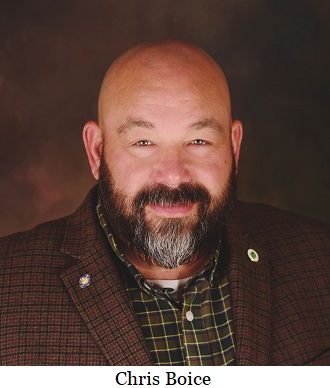
Commissioner Freeman emphasized that the Board of Commissioners did not vote on waivers, "that did not happen, we did not vote on those waiversâ€. However, their county employee, Director of Solid Waste Scott Adams, made two of those decisions regarding the Safeway and the Windmill waivers. Freeman claimed that it was SWAC’s idea to give the Director the authority to make those decisions.
Douglas County Commissioner Chris Boice stated that SWAC member Dick Heard told the county that they needed to charge $140 a ton immediately or they would not met financial requirements. That was contradicted by the Carisa Cegavske article that stated “Committee member Dick Heard suggested the number should be adjusted to $97 right away.â€
Commissioner Boice addressed a statement by Ellen Porter saying “The fact that you quote the News Review Article and present it as Gospel to me is a little bit humorous because I have not known them to get the story completely accurately (sic) very often.â€
The COB meetings, and this public hearing embedded within the COB meeting, are not structured to allow for rebuttal to the commissioners statements.
A D V E R T I S E M E N T

A D V E R T I S E M E N T
Larry Spielbusch, a former chairman of SWAC contributed the following comment; “There would not be a Roseburg Landfill if not for the involvement of the SWAC, solid waste operations, public works engineering, county commissioners and numerous private consultants that convinced the DEQ that a landfill could exist where it is now with the proper controls. For the current BOC to state the SWAC is “useless†is absolutely incorrect and flies in the face of over 50 years of work by a large number of intelligent individuals that provided numerous hours of work to insure we could operate a landfill in Douglas County. This current BOC has no desire to hear what the public has to say and the current solid waste staff/engineering are by far inferior to what existed in the past.â€
Neither of the Commissioners, Tom Kress nor Tim Freeman, have ever attended a SWAC meeting. The BOC unanimously passed the amendments to the Douglas County Ordinances that will strike all references to the SWAC from the County Code as of July 12, 2023. SWAC no longer exists.
--Terry Noonkester| Post Date: 2023-04-18 11:19:55 | Last Update: 2023-04-18 11:38:18 |
Oregonians pay among the highest tax rate in the nation
Oregon Senate Republicans attempted to withdraw seven pieces of legislation from committee that would help relieve Oregonians saddled with inflationary costs and tax burdens. This procedure allows for a floor vote on bills a committee chair doesn’t act on.
Thanks to a decade of failed policy and never-ending tax increases passed by Oregon Democrats, Tax Day has become more and more daunting for Oregonians. Even as we pay among the largest share of taxes of any state in the nation, Senate Democrats refused to consider the entire ‘Affordability’ Package.
“As elected leaders, it’s critical that we are good stewards of taxpayer dollars and that we show our constituents the value of the strategic investments we make,†said Deputy Leader Kim Thatcher (R-Keizer), who moved to withdraw from committee
SB 990, a measure returning the Kicker in the form of a check instead of a credit.
“For decades, the majority party has failed to make Oregon more affordable for working families. In fact, they’ve done the opposite,†said Senate Republican Leader Tim Knopp (R-Bend), who moved to withdraw from committee
SJM 1, a measure urging Congress to adopt a balanced budget amendment to the U.S. Constitution.
“Today, because of partisan politics, this body failed to make a meaningful difference in the pocketbooks of Oregonians when we had the chance,†said Deputy Leader Dick Anderson (R-Lincoln City), who moved to withdraw from committee
SB 446, a measure establishing a refundable income tax credit of $1,000 per qualifying child.
“Democrats have turned the Senate into a legislative graveyard where good bills go to die,†added Knopp. “It is said that the only two things we are guaranteed in life are death and taxes. It turns out, this is also true of the Democrat-controlled Senate.â€
Today, Oregon (and Massachusetts) residents will pay the
largest share of their income in taxes. Oregon consistently lands in the
top 5 most expensive states to live in, and
top 5 most expensive states to retire in.
A D V E R T I S E M E N T

A D V E R T I S E M E N T
Meanwhile, Oregon has experienced one of the nation’s
largest increases in homelessness and a major housing affordability crisis. Performance in Oregon schools continues to plummet despite record spending. Oregon ranks
worst in nation for prevalence of mental illness and access to care. The drug
overdose death rate is among the highest in the nation and the
crime rate lands in the top 10.
The complete ‘Affordability’ Package Senate Democrats rejected.
 --Dollie Banner
--Dollie Banner| Post Date: 2023-04-18 11:15:44 | Last Update: 2023-04-18 17:29:30 |
CCFO submits 1,000 sponsorship signatures
Constitutional Carry for Oregon (CCFO) has now submitted the required 1,000 “sponsorship signatures†to the
Oregon Secretary of State’s Office, completing the next step in the process to get IP-21 on the ballot.
In total, CCFO submitted 1,345 signatures. CCFO says that provide a significant buffer should some signatures prove invalid.
IP-21 seeks to amend the Oregon Constitution, establishing the right to carry concealed firearms without a permit. At present, 26 U.S. states are already constitutional carry states.
After the Secretary of State’s Office validates the sponsorship signatures, which may take up to ten days, the
Attorney General’s Office will generate a ballot title.
A D V E R T I S E M E N T

A D V E R T I S E M E N T
Barring legal challenges to that title, the process of gathering the 160,551 signatures for the initiative to appear on the November 2024 ballot will begin thereafter.
CCFO has until July 5, 2024, to submit signatures.
Constitutional Carry for Oregon is a grassroots volunteer effort.
The three chief petitioners are: Joel Pawloski, a retired Army Lt. Colonel in Marion County; Kerry McQuisten, the former mayor of Baker City in Baker County; and Jean Sampson, former city council member of Clatskanie in Columbia County. More information
can be found on their website
--Ben Fisher
| Post Date: 2023-04-17 15:36:06 | Last Update: 2023-04-17 18:10:51 |
Read More Articles








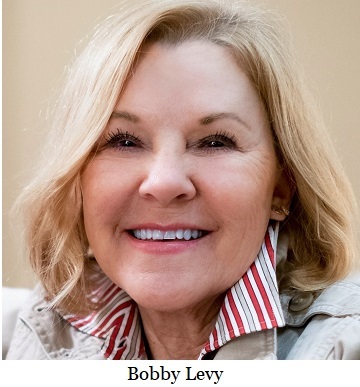

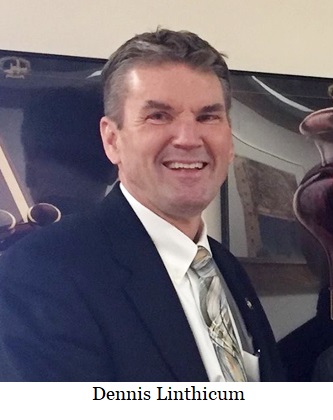




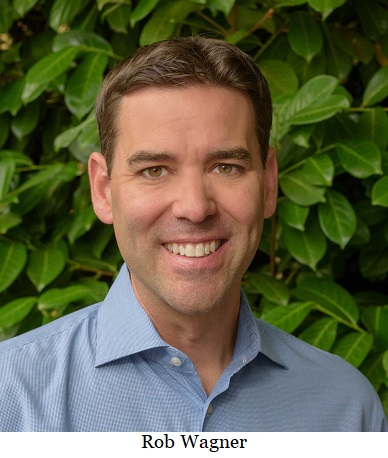

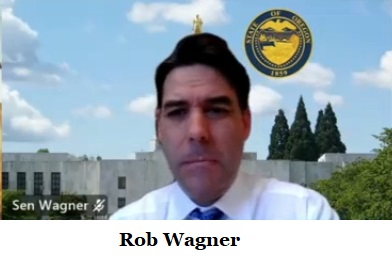


 “As elected leaders, it’s critical that we are good stewards of taxpayer dollars and that we show our constituents the value of the strategic investments we make,†said Deputy Leader Kim Thatcher (R-Keizer), who moved to withdraw from committee SB 990, a measure returning the Kicker in the form of a check instead of a credit.
“As elected leaders, it’s critical that we are good stewards of taxpayer dollars and that we show our constituents the value of the strategic investments we make,†said Deputy Leader Kim Thatcher (R-Keizer), who moved to withdraw from committee SB 990, a measure returning the Kicker in the form of a check instead of a credit.

 “Democrats have turned the Senate into a legislative graveyard where good bills go to die,†added Knopp. “It is said that the only two things we are guaranteed in life are death and taxes. It turns out, this is also true of the Democrat-controlled Senate.â€
“Democrats have turned the Senate into a legislative graveyard where good bills go to die,†added Knopp. “It is said that the only two things we are guaranteed in life are death and taxes. It turns out, this is also true of the Democrat-controlled Senate.â€



 The personal income tax and marginal corporate income tax obligations stayed stable until 2019, but property tax took a big leap in 2009 and again in 2010 corresponding with a drop in the economic outlook. The culprit seems to be all the remaining tax burdens ranked at 42 costing $21.85 per $1,000 spent made up of fees, hidden sales tax and gas taxes that rose as economic outlook declined over the years.
The personal income tax and marginal corporate income tax obligations stayed stable until 2019, but property tax took a big leap in 2009 and again in 2010 corresponding with a drop in the economic outlook. The culprit seems to be all the remaining tax burdens ranked at 42 costing $21.85 per $1,000 spent made up of fees, hidden sales tax and gas taxes that rose as economic outlook declined over the years.

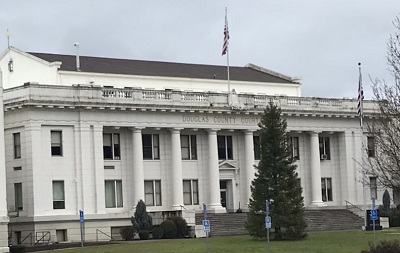

 Members of the public spoke, too. Michaela Hammerson testified saying; “I don’t believe there has been sufficient public discourse about disbanding this and changing our laws here in Douglas County. I would appeal to you that before we make a decision like this we first involve the community and allow them to have public discourse. We have over the last few years really seen that the community and the public and American people in general are very interested in being a part of their own self-governance.â€
Members of the public spoke, too. Michaela Hammerson testified saying; “I don’t believe there has been sufficient public discourse about disbanding this and changing our laws here in Douglas County. I would appeal to you that before we make a decision like this we first involve the community and allow them to have public discourse. We have over the last few years really seen that the community and the public and American people in general are very interested in being a part of their own self-governance.â€

 Commissioner Freeman emphasized that the Board of Commissioners did not vote on waivers, "that did not happen, we did not vote on those waiversâ€. However, their county employee, Director of Solid Waste Scott Adams, made two of those decisions regarding the Safeway and the Windmill waivers. Freeman claimed that it was SWAC’s idea to give the Director the authority to make those decisions.
Commissioner Freeman emphasized that the Board of Commissioners did not vote on waivers, "that did not happen, we did not vote on those waiversâ€. However, their county employee, Director of Solid Waste Scott Adams, made two of those decisions regarding the Safeway and the Windmill waivers. Freeman claimed that it was SWAC’s idea to give the Director the authority to make those decisions.





